This week, read about the best way to deliver health messages, Sport England’s #thisgirlcan campaign, beet juice improves exercise-related vasodilation in older adults, the 88-year old skier you want to be, why carbs are not the enemy, how to make yourself go to the gym, and more.
How best to deliver messages about promoting health?
Given the state of the general public’s health, this is a very important question. Researchers at the Cornell Food & Brand Lab found that the effectiveness of the message depends on the target audience. Negative “loss-framed” messages that might invoke fear (e.g., you increase your cancer risk if you don’t eat fruits and vegetables) tend to work better for experts in the field, who perceive the message as a call to action, rather than a threat. The public, however, is more likely to act on positive messages (i.e., fruits and vegetables will keep you healthy). (Nutrition Reviews)
Here is study co-author Brian Wansink, explaining the research.
Maybe we should get celebrities to deliver science-based health messages. . .
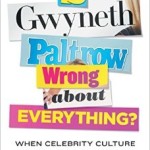 Celebrities have a disturbing amount of influence over matters like science and health, which is unfortunate because most of them are peddling plenty of misinformation. CBC Radio (the current) interviews author Timothy Caufield, a health and science policy researcher, about his new book “Is Gwyneth Paltrow Wrong About Everything? When Celebrity Culture and Science Clash ” (this looks like an excellent book!). Find out why we should not follow health advice of most celebrities. (CBC The Current)
Celebrities have a disturbing amount of influence over matters like science and health, which is unfortunate because most of them are peddling plenty of misinformation. CBC Radio (the current) interviews author Timothy Caufield, a health and science policy researcher, about his new book “Is Gwyneth Paltrow Wrong About Everything? When Celebrity Culture and Science Clash ” (this looks like an excellent book!). Find out why we should not follow health advice of most celebrities. (CBC The Current)
Or, some think HUMOR is the way to deliver public health messages. . .
How comedy can be used for public health (John Mooney, The Conversation).
England’s Campaign to Increase Physical Activity in Women
Sport England’s drive to get more women involved in exercise sweeps aside stigmas and is ideal for social sharing. Check out the #thisgirlcan ad campaign: no models – just gumshields, sweat and endorphins.
Here is one of the ads . . .
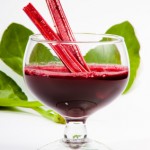 Beet juice enhances exercise-related vasodilation in older adults
Beet juice enhances exercise-related vasodilation in older adults
In young people, blood vessels dilate in response to challenging exercise to help oxygen get to the active muscles, and nitric oxide is an important factor in this response. Nitric oxide regulates vasodilation, relaxing blood vessels and improving blood flow, which could allow more oxygen to reach the muscles. Additionally, it seems that nitric oxide helps muscle mitochondria become more efficient.
Studies have shown that in older adults, this vasodilation response is attenuated because their is less nitric oxide signaling. In a study published this week, researchers found that ingesting dietary nitrates (which the body converts to nitric oxide) helps overcome this limitation: older adults (64 years) who drank beet juice before an exercise task had improved compensatory vasodilation compared to when they didn’t drink beet juice. (Journal of Applied Physiology, 15 Jan, 2015).
Beets aren’t the only source of dietary nitrates. Consider these healthy vegetables, which are also rich in nitrates: rhubarb, arugula, spinach, celery, cress, chervil, lettuce, beets, chinese cabbage, endive, fennel, kohlrabi, leek, and parsley.
This study adds to the growing evidence suggesting that dietary nitrates are important for health. You can read more about beet juice and exercise here.
More Links of Interest This Week:
- The 88-Year-Old Skier You Wish You Could Be – Eddie Hunter in Banff Nat Park & Mt. Norquay->breathtaking!
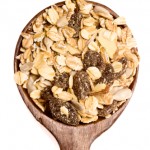 Carbs Are Not the Enemy: Oversimplification Is. The problems with limiting healthy carbs. (John Berardi)
Carbs Are Not the Enemy: Oversimplification Is. The problems with limiting healthy carbs. (John Berardi)- Diet research relies heavily on self-reported dietary intake: Experts explain why this is a big problem. (International Journal of Obesity, 2014, 1-5).
- 15 myths & facts for runners. Wondering about static stretching, foam rolling, ice baths, etc.? Good review. (Josh Stone)
- A 12-Hour Window for a Healthy Weight – more evidence for health benefits of time-restricted eating (in mice). (Gretchen Reynolds, New York Times)
- Playing catch with medicine ball improves balance in seniors. (Medical Health Express/Electromyography and Kinesiology, and Experimental Brain Research)
- Want to get kids to eat the fruits and vegetables in their lunches? Researchers from Cornell University found that when recess is before lunch, kids eat more fruits & vegetables; when recess if after lunch, they eat fewer fruits and vegetables, likely because they are rushing to get out to play, or have less appetite. (Preventive Medicine, February 2015).
- How to Make Yourself Go to the Gym-> a behavioral economics perspective using commitment contracts (New York Times)
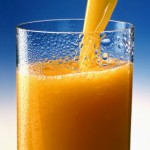 Orange juice: Is ‘premium’ juice actually more natural? ‘Premium’ juice can be highly processed, CBC Marketplace investigation finds. (CBC Marketplace). Not only is most juice not “natural,” it is not that healthful. You can read more about why you should limit fruit juice here.
Orange juice: Is ‘premium’ juice actually more natural? ‘Premium’ juice can be highly processed, CBC Marketplace investigation finds. (CBC Marketplace). Not only is most juice not “natural,” it is not that healthful. You can read more about why you should limit fruit juice here.- Supplements recalled for containing potentially dangerous undeclared pharmaceutical ingredients still for sale. Dietary supplements are not regulated, often don’t undergo proper studies to determine their safety and efficacy, and many claims are unsubstantiated. (Berkeley Wellness).
- Can Compression Clothing Enhance Your Workout? A look at the latest evidence. (Gretchen Reynolds, New York Times)
- How a famous scientist duped America into believing vitamin C cures colds. The Vitamin C cures colds myth persists, despite a large body of research that disproves it. (Vox.com)
- Heart Disease and Lifestyle: Why Are Doctors in Denial? Excellent post by John Mandrola.
- Brown Fat: Step Away from the Thermostat! Nice summary of research (Jill Parnell, No Baloney Blog).
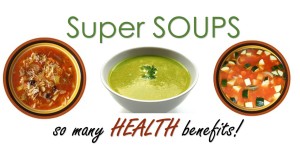 Too much, too soon, Tim Noakes! Prof Tim Noakes might be a scientist, but the Banting Diet is based on bad scientific reasoning. (Health 24)
Too much, too soon, Tim Noakes! Prof Tim Noakes might be a scientist, but the Banting Diet is based on bad scientific reasoning. (Health 24)- And in case you missed it, read about the many health benefits of soups.